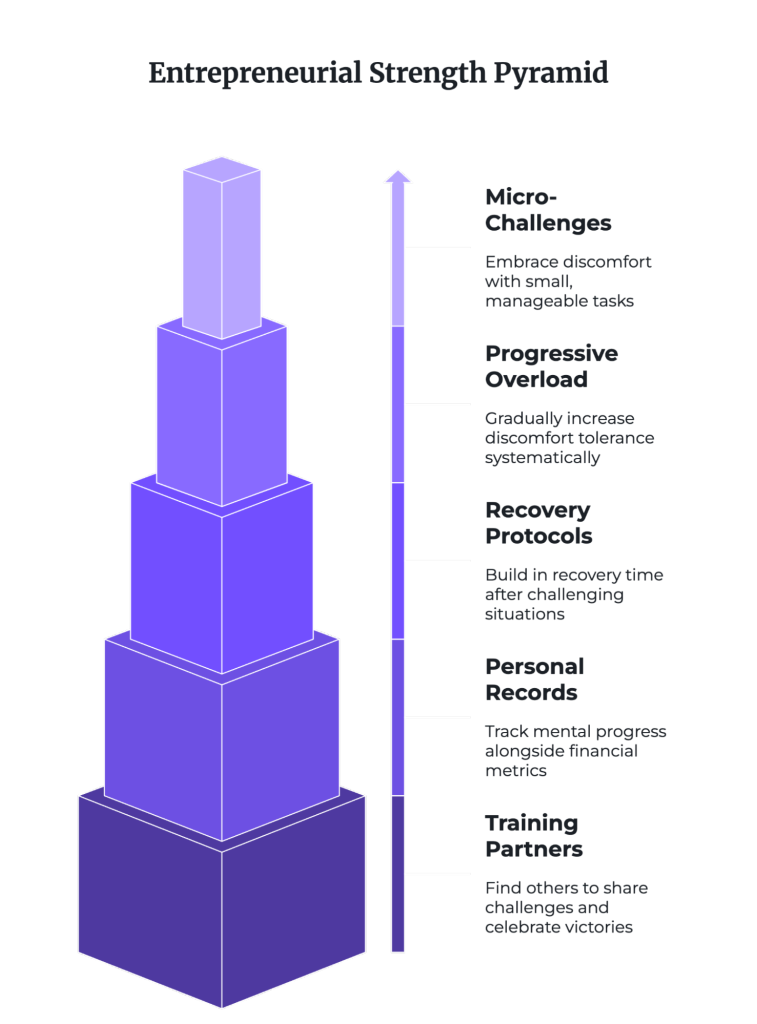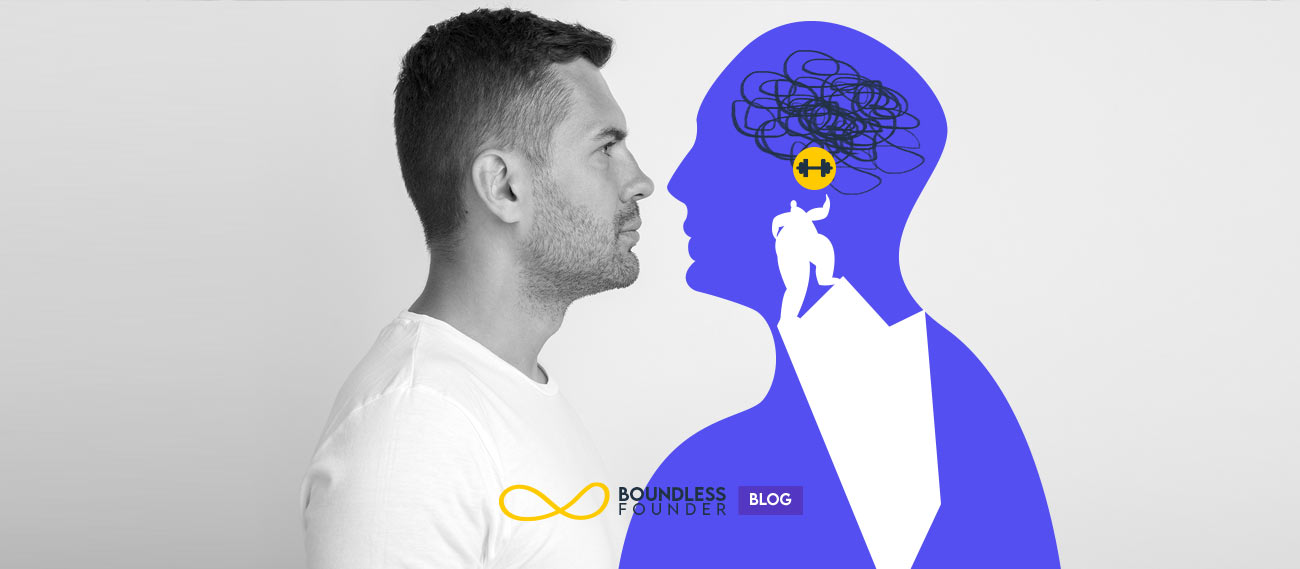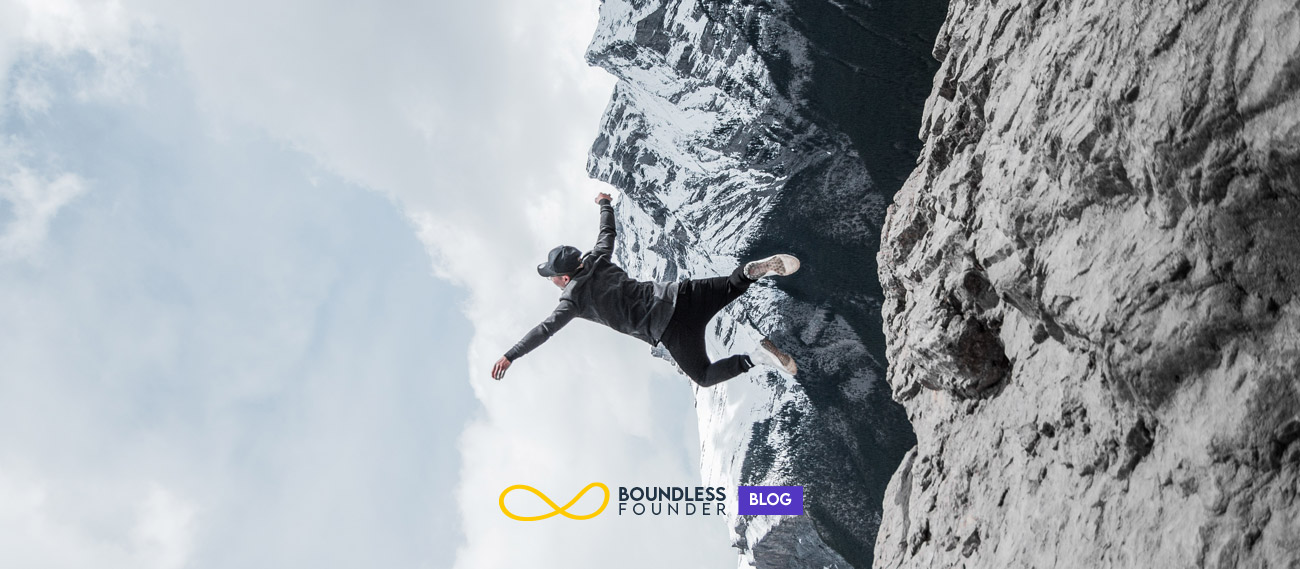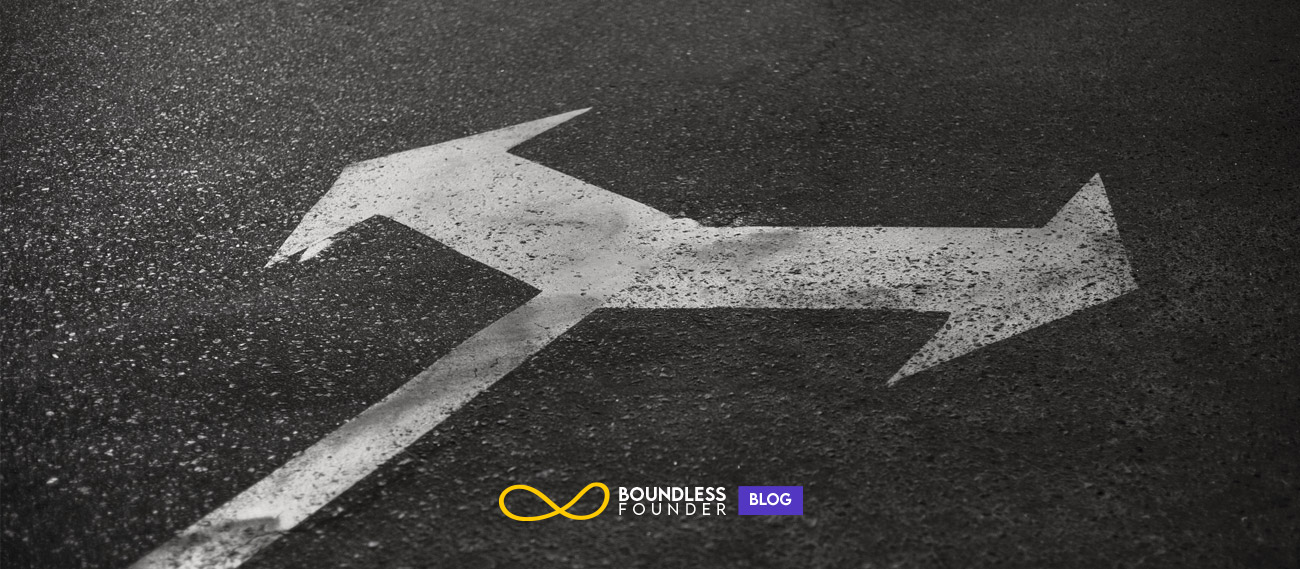The Day My Body Taught Me What My Mind Couldn’t Accept
It was my first year running my startup, and I couldn’t get out of bed. Not because I was lazy or depressed, but because my body had simply shut down. After months of sleepless nights worrying about whether contractors might wipe out our infrastructure, my physical self staged an intervention my mind had been ignoring. As I lay there, unable to move, I realized something profound: the burning sensation I’d been feeling wasn’t just physical exhaustion—it was my body teaching me a lesson about the entrepreneur growth mindset that no business book had ever explained.
That morning changed everything. It forced me to understand that applying your entrepreneurial mind isn’t just about mental gymnastics—it’s about embracing the same principles that make physical training effective: progressive overload, recovery, and most importantly, learning to embrace discomfort as a signal of growth rather than a warning to stop.
The Dangerous Disconnect Between Mind and Body in Entrepreneurship
Most entrepreneurs treat their bodies like inconvenient hardware that occasionally needs maintenance. We push through exhaustion, ignore warning signals, and pride ourselves on working through pain. But research from the Journal of Health Psychology shows that this disconnect doesn’t just harm our health—it fundamentally undermines our business performance. Regular physical challenge significantly lowers stress hormones while elevating endorphins, leading to the enhanced mental clarity essential for critical business decisions.
The entrepreneurial world perpetuates a dangerous myth: that mental toughness means ignoring physical limits. We celebrate founders who work 100-hour weeks and sleep under their desks, mistaking self-destruction for dedication. But here’s what I learned lying in that bed, unable to move: your body isn’t separate from your entrepreneurial journey—it’s your most honest business advisor.
Forbes research reveals a stunning insight: mental toughness is actually 70% physical, contradicting our assumptions about willpower being purely mental. When we neglect the physical dimension of mental strength, we’re essentially trying to build a business on quicksand.
Understanding the Physical-Mental Success Connection
The concept of using physical challenges to build entrepreneurial strength isn’t new, but it’s deeply misunderstood. MIT Sloan research identifies three core traits of entrepreneurial mindset: being solutions-oriented, resilient, and resourceful even when conditions suggest otherwise. What they don’t tell you is that these traits are most effectively developed not in boardrooms, but in moments of physical challenge.
Think about it: when you’re pushing through the last rep of a workout, when your muscles are burning and your mind is screaming to quit, you’re not just building physical strength. You’re rewiring your neural pathways to handle discomfort, to push through resistance, and to find resources you didn’t know you had. This is exactly what Carol Dweck’s research at Stanford tells us about growth mindset—the belief that abilities can be developed through dedication and hard work.
The parallel between physical training and business success isn’t metaphorical—it’s neurological. When you learn to embrace the burn in your muscles, you’re literally training your brain to handle the burn of rejection, financial pressure, and uncertainty that comes with entrepreneurship.
How I Discovered the Power of “Embracing the Burn”
After my body’s forced intervention, I started rebuilding my routine differently. Instead of seeing exercise as time away from my business, I began viewing it as essential entrepreneurial training. I started with simple walks, then light workouts, eventually building to a structured routine. But the real transformation wasn’t physical—it was mental.
I discovered what athletes call “embracing the burn”—that moment when discomfort transforms from an enemy to a teacher. As research published in Self and Identity shows, participants who adopted a “difficulty-as-improvement mindset” reported higher motivation, well-being, and growth mindset. They demonstrated greater life satisfaction and stronger sense of meaning when they viewed struggles as indicators of personal growth rather than setbacks.
One morning, four months into my new routine, I faced my seventeen-year-old son in a push-up challenge. Four months earlier, he could easily outperform me. But that day, I cranked out fifty-five push-ups in one minute—half the world record. The physical achievement was satisfying, but the mental transformation was profound. Every push-up where my muscles screamed to quit was practice for every moment in business when everything screams to give up.
This wasn’t about becoming a fitness fanatic. It was about understanding that the same mental patterns that help us push through physical discomfort—breaking large challenges into small steps, focusing on form over speed, celebrating incremental progress—are exactly what builds entrepreneurial success.
Practical Steps: Building Your Entrepreneurial Strength Through Physical Challenge
Based on research and my own transformation, here’s how to apply physical training principles to develop an unstoppable entrepreneur growth mindset:
1. Start with Micro-Challenges
Just as you wouldn’t attempt a marathon without training, don’t expect to transform overnight. Research on mental toughness development identifies “embracing discomfort” as the first step. Start with five-minute challenges—a cold shower, a short intense workout, or holding a plank. The goal isn’t physical transformation; it’s teaching your mind that discomfort is temporary and survivable.
2. Practice Progressive Overload
In weightlifting, progressive overload means gradually increasing weight or reps. In entrepreneurship, it means systematically increasing your discomfort tolerance. If making one sales call terrifies you, start there. Then make two. Then five. Your “mental muscles” grow the same way physical ones do—through consistent, progressive challenge.
3. Implement Recovery Protocols
Physical training teaches us that growth happens during recovery, not during the workout itself. The same applies to mental strength. After facing a challenging situation—a difficult negotiation, a product launch, a funding rejection—build in recovery time. This isn’t weakness; it’s strategic strength building.
4. Track Your “Personal Records”
Athletes track their progress meticulously. Entrepreneurs should too, but not just revenue metrics. Track your mental PRs: How long did it take to bounce back from that rejection? How many uncomfortable conversations did you have this week? Progress in these areas predicts business success more than any financial metric.
5. Find Your Training Partners
No athlete trains alone, and neither should entrepreneurs. Find others who understand that building a business is as much about mental conditioning as market conditions. Share your challenges, celebrate your mental victories, and push each other to new levels of resilience.

The Transformative Outcomes of Physical-Mental Training
When you commit to building entrepreneurial strength through physical challenge, the results extend far beyond improved fitness. UCL School of Management research reveals that 92% of founders rank resilience as the number one requirement for entrepreneurship, surpassing even problem-solving and communication skills.
Here’s what you can expect when you embrace this approach:
Faster Recovery from Setbacks: Just as physical training reduces muscle recovery time, mental training through physical challenge speeds your bounce-back rate from business setbacks. What once took weeks to process now takes days or hours.
Enhanced Decision-Making Under Pressure: The clarity that comes from pushing through physical discomfort translates directly to business situations. When your body has practiced performing under stress, your mind knows how to maintain clarity when stakes are high.
Increased Confidence in Unknown Situations: Every time you push past a physical limit you thought was fixed, you prove to yourself that perceived limitations are often mental constructs. This confidence becomes your secret weapon in business.
Deeper Connection to Purpose: Physical challenge strips away the superficial and connects you to what really matters. This clarity of purpose becomes your north star during difficult business decisions.
Your Next Step: From Reading to Doing
The entrepreneur growth mindset isn’t built through reading—it’s built through doing. Your body is waiting to teach you lessons about resilience, persistence, and breakthrough that your mind alone cannot grasp.
Start tomorrow morning with one simple challenge that makes you slightly uncomfortable. Maybe it’s a cold shower, a short run, or holding a plank for 60 seconds. The specific challenge matters less than your decision to embrace discomfort as a teacher rather than an enemy.
Ready to build unshakeable mental strength through proven physical and mental conditioning techniques? Download our free “Mental Resilience Workbook” at boundlessfounder.co/resources to get structured exercises that transform entrepreneurial challenges into opportunities for growth.
For ongoing support in applying your entrepreneurial mind to build lasting resilience, join our community at boundlessfounder.co/join. Together, we’re proving that the strongest businesses are built by founders who understand that true strength comes from within.











Responses